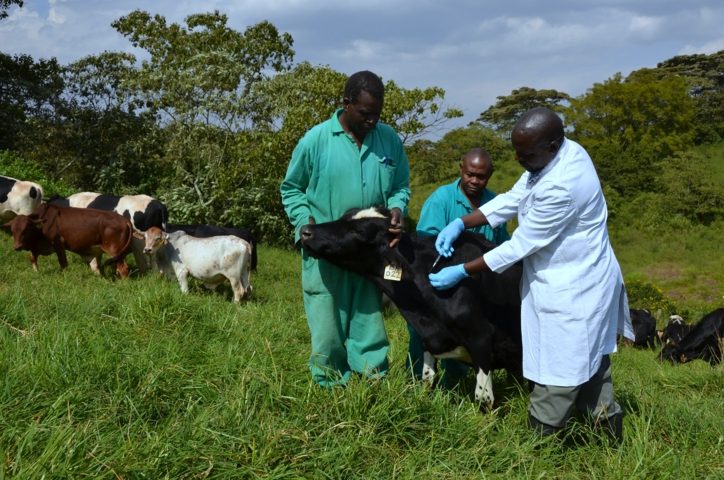Researchers and policymakers who attended a review meeting of the Biosciences eastern and central Africa-International Livestock Research Institute (BecA-ILRI)-Sweden partnership in Kenya last month (10-14 November) expressed concern that African governments are not investing enough in research that promotes biosciences despite its potential to improve agriculture.
“Our research programmes are mainly funded and supported by external donors,” says BecA-ILRI Hub director Appolinaire Djikeng. “This poses sustainability risks to our work if the donors withdraw. Djikeng urges African universities to be more involved in developing biosciences.
“Our research programmes are mainly funded and supported by external donors. This poses sustainability risks to our work if the donors withdraw.”
Appolinaire Djikeng, BecA-ILRI Hub
“A good reassessment needs to be done so that university research responds to the needs of the region,” explains Djikeng. He also advises governments to invest in post-harvest losses and systems such as markets so that the continent can reap benefits from increases in agricultural productivity.
The delegates commended the Swedish International Development Cooperation Agency (Sida) for supporting the partnership which runs various research programmes aimed at increasing food security and climate change mitigation.
The five-year, US$24 million partnership that began in 2011 with funding from Sida has aided research in crop and livestock improvement, tissue culture and capacity building across Sub-Saharan Africa, says Djikeng. For example, a genetic diversity for goat improvement project at two research sites in Cameroon and Ethiopia that has aided the promotion and use of existing and new knowledge to improve goat husbandry and management at farm and policy levels.
Gity Behravan, the senior research advisor and first secretary regional research cooperation at the embassy of Sweden in Kenya, tells SciDev.Net: “We aim to continue supporting Africa in [the] alignment to its development agenda,” noting that their programmes will focus on addressing Africa’s agricultural challenges through risk analysis.
Behravan adds that African governments should transform research to respond to the needs of smallholders. “Agricultural systems need to have reliable solutions to [meet] the needs of farmers even in scenarios of climate change,” Behravan notes, pointing out that there is need for national policy commitments to biosciences.
Djikeng says the partnership has trained scientists who can now run sustainable research programmes and the team and that there will be scale-up across the continent of some of the innovations and technologies such as climate-smart Brachiaria humidicola, a species of grass for improved livestock production, resulting from the initiative.
Francis Wachira, the deputy executive director of the Association for Strengthening Agricultural Research in Eastern and Central Africa, appreciates the partnership and calls for its continuation as it is helping in addressing Africa’s food security and capacity building challenges.
“This partnership is helping understand the disease epidemiology of maize lethal necrosis, which is now a regional challenge to maize,” Wachira observes.
This article has been produced by SciDev.Net’s Sub-Saharan Africa desk.

 Key points
Key points
